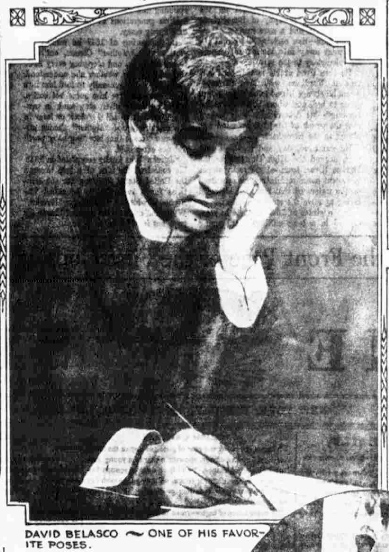The following is taken from an article which first appeared in The Daily Evening Telegraph in 1871:
The Property Man has always been in some sort the black sheep of the theatrical flock. The question, has there ever been an honest property man? has even been mooted. We find this appreciation of his labors to result chiefly from the irregular manner that the master of properties has of keeping his accounts. As a general thing, indeed, he does not keep any at all, or if he does it is by a system of book-keeping so very double that no one but himself can untie the knot. He is allowed to purchase his small stores from a fund furnished him by the theatre, and to obtain larger articles on credit, bills of all to be rendered weekly, after being vised by the stage manager, to the treasurer. But the articles required are so numerous and are in many cases of so trifling a character that no one but himself can keep the run of them.
One of the most prized accomplishments of a stage manager is the ability to keep down these bills, but the very sharpest of those gentlemen is to a degree at the mercy of the Property Man who understands his business. A list a yard long is demurely handed to the stage manager, with a request for his signature. How is he to know if the articles have all been used, or that they cost the price affixed? A finer point still, how is he to know that they had not already been stored away in the theatre? So, if the manager should even check the items off, one after the other, demanding a full explanation of each, he might be still very wide of the mark.
Experienced men know this, and do not attempt to audit their property bills in that manner. Some managers as a regular thing coolly deduct a certain per cent of the total. This they say is for errors, and the property men are mostly too polite to dissent. Managers generally, however, learn by experience about what it costs to run the different orders of plays. Spectacle and sensation drama cost most; tragedy next, and comedy least. Knowing the bill of fare they have at the time been giving to the public, they know what their Property Man’s bill should be, and if, judged by these rules, it be exorbitant, they remonstrate with the logic of precedent. This will not cover, however, the important point before mentioned—the accumulation of old stores that may often be recharged as new.
There is a story in one of Dumas’ novels of a man travelling on horseback with a girl seated before him on the beast, and another behind him. He is met by a person who asks if those young women are virtuous. The man on horseback says that he thinks the one in front, being continually under his eye, is, but for the one at his back he can say nothing. In like manner the Property Man’s accounts, as far as relates to what is really bought for the occasion, may be correct, but for what is not bought, and yet for which the theatre has all the same to pay, the manager has, in nature, nothing to say.
Originally published in The Daily Evening Telegraph, Philadelphia, May 12, 1871, pg 5.

